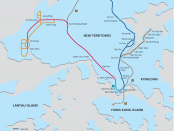LEARNING ISSUES
1. What is the effect of Malaysian economy in recession in 1985?
A recession is usually defined as a fall of a country's Gross National Product (GNP) in three successive quarters. A recession may involve falling prices, which can lead to a depression; alternatively it may involve sharply rising prices (inflation), in which case this process is known as stagflation. Recessions are mostly caused by external economic shocks, or the unwinding of major imbalances in the economy.
The recession experienced in Malaysia in 1985 lasted for only one year with a mild 10 percent contraction (The Malaysian Financial Crisis: Economic Impact and Recovery, 2002). Malaysian recession affects Malaysia's stock market, currencies, prices of products rise tremendously and high rate of unemployment. However, unemployment in the eighties started to rise again following the recession in 1985-86, and peaked at 8.3 per cent in 1986. Most of the unemployed in the country are recent school leavers and young new entrants to the labour force who, with better education, tend to be more selective in their choice of jobs and less willing to accept certain jobs such as those in the plantation sector and in the construction industry.
This unemployment estimate of 6 per cent is high because it includes those who are not actively looking for work and they comprise nearly half of the total unemployed (The Malaysian Financial Crisis: Economic Impact and Recovery, 2002). Therefore, if this category of unemployed is excluded, the incidence of unemployment would have been much smaller.
2. What is a merger?
In business or economics a merger is a combination of two companies into one larger company. Such actions are commonly voluntary and involve stock swap or cash payment to the target. Stock swap is often used as it allows the shareholders of the...


